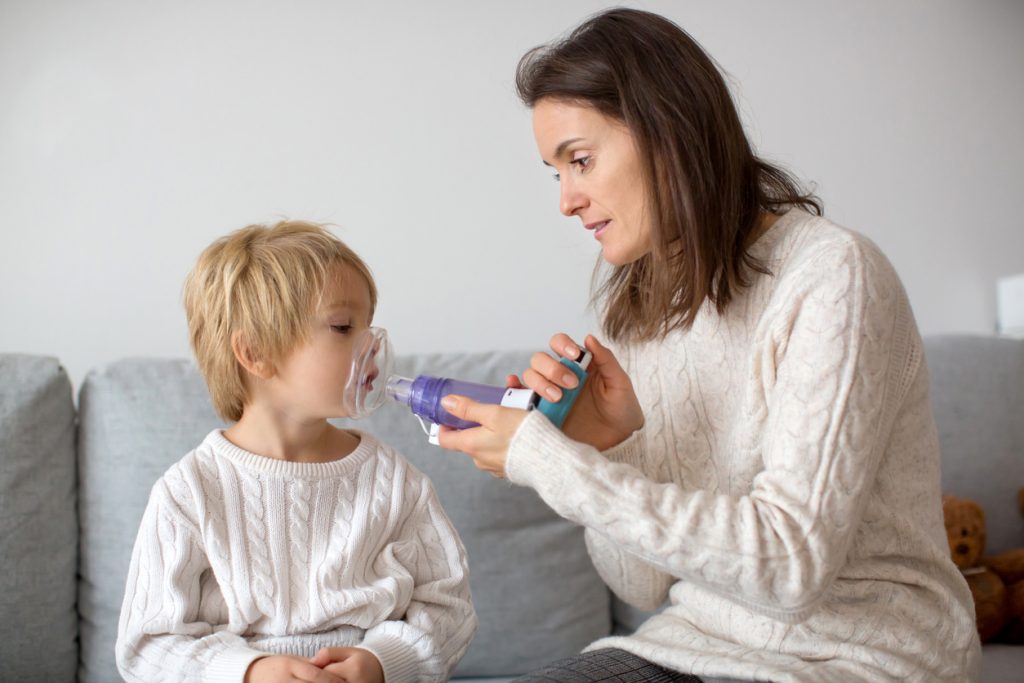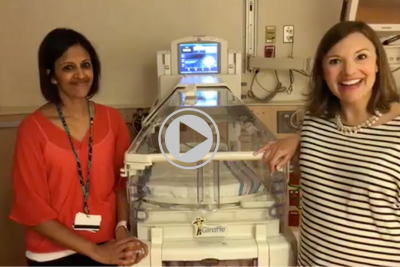Asthma is a clinical diagnosis that is often misunderstood because it can present in different ways with different severities. We define asthma as airway inflammation (swelling) with airway muscle hyperreactivity that is reversible with asthma medications. Symptoms associated with asthma include cough, shortness of breath, and wheezing. Below are five common childhood asthma myths I hear in the clinic.
My child has not had an “asthma attack” with difficulty breathing or wheezing; therefore, they do not have asthma
This is a common misconception regarding the diagnosis of asthma, which can present in different ways with different symptom triggers and different severities. Some children have mild symptoms that present a few times a year, and some children have more persistent symptoms on a daily or almost daily basis. Some children may only have cough symptoms, and some experience all symptoms. Symptom triggers can also be different. For example, some children’s symptoms are triggered by respiratory infections, some are triggered by exercise, allergies trigger some, and some have multiple triggers. The important thing is to know that asthma does not have a “one size fits all” presentation, and every child will be different.
If a child is doing well, they do not need to take their asthma medication
The goal of asthma management is to control symptoms. Different children will present with their own symptom pattern in terms of frequency and severity. Some children will require treatment as needed, and others will require treatment more frequently or daily. Intermittent symptoms are often treated with “rescue” medications, and more persistent symptoms are treated with “controller” or “maintenance” medications. If your child’s physician has instructed you to give an asthma medication daily, most likely, your child is having frequent symptoms enough to need a controller or maintenance medication. If this is the case, then you should continue this medication even when your child is doing well since the goal of a controller or maintenance medication is to reduce or resolve frequent asthma symptoms. If your child is doing well, it means that the medication is doing its job. If you have questions regarding the need for the medication you should consult your doctor before stopping it.
Asthma medications can create dependency
There is no evidence that asthma medications are addictive. If your child is asking to use their rescue inhaler frequently, it is usually because their symptoms are not well controlled. In this case, you should review your child’s symptoms with your doctor so they can evaluate if the treatment is appropriate and if the diagnosis of asthma is the correct one.
All children outgrow asthma
This is a common misconception. It is most likely derived from the fact that many preschool-aged children will have symptoms of persistent cough and wheezing treated with asthma medication that resolves by the time they leave preschool. For some of these children, asthma symptoms may come back later in life, and they are later diagnosed with asthma. Some factors associated with the development of asthma in the future include the presence of allergies, eczema, and parent history of asthma, amongst others. Most children diagnosed with asthma in the school-aged years will continue to have asthma into their teenage years, but asthma can change in frequency and severity, thus becoming milder or more severe. Following up regularly with your doctor is important to review the diagnosis, symptom patterns, and symptom control.
Children with asthma cannot exercise or participate in sports
Exercise is often a trigger for asthma symptoms. Some parents or children see this as a reason to stop exertional activities or participation in sports. However, this is not the goal in asthma management. Exercise is very important for lung health and for maintaining health in general. The goal is not to limit activities but to tailor therapy so that every child with the diagnosis of asthma can exercise and participate in any sport that they want to try. If exercise is a problem for your child, consult with your doctor as their asthma medications may need to be adjusted.
Overall, there are different presentations of asthma symptoms and asthma severities. It is very important that you are well informed regarding your child’s symptoms, triggers, and medications since you are the expert when it comes to your child. If you are concerned about your child’s diagnosis, don’t hesitate to contact your child’s doctor and make sure all your questions are answered.






Comments